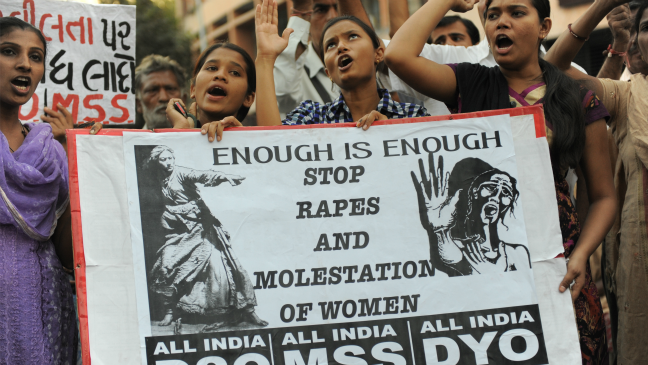As we fight for the rights of every woman in this country to feel safe and have the freedom to do whatever she wants irrespective of the time of day or the clothes she wears, let us also pause to think about something far more specific — the working woman in cities.
Reading about the recent gang rape in Mumbai got me thinking about all those times I or my other female photojournalist friends had gone out into the field for stories, late in the evenings and sometimes even well into the night. I didn’t need to think too hard to realise that on every single occasion, the presence of a working woman out on the streets at night had never gone unnoticed. Being glared at, followed, verbally abused and teased is almost a daily experience for women who work in this field. There have been so many times I have thought twice, thrice about following as story that might need me to explore unsafe territory. And so many times I have had to be accompanied by a male colleague whose only job on the spot would be to stand guard.
As we fight for the rights of every woman in this country to feel safe and have the freedom to do whatever she wants irrespective of the time of day or the clothes she wears, let us also pause to think about something far more specific — the working woman in cities.
Our society in different ways makes us aware that a working woman is an aberration, an exception and most importantly undesirable and unnatural. Women all through history have had to struggle to negotiate their space in the public domain. Even when the notion of women stepping out of their homes was accepted (during the freedom struggle for example), it was justified as a sacrifice for the sake of the nation and always footnoted with an insistence on balancing both the home and their work outside.
In today’s world however, whether men like it or not, whether they approve or not, there is a steady process of extending the liberties previously allowed to women. Not interested in paternalistic protection, women are reclaiming their space in the city- not simply as daughters or wives, but as single, independent, working individuals who want to be given a fair shot at achieving their dreams.
The problem here is not women’s clothes, or how they walk or talk or behave. The problem is not that they believe that it is their right to be able to take a bus at 10:00 at night. Nor is it that they dare to enter a profession such as journalism or photography or medicine. The fault here lies clearly and squarely with men who cannot understand the changing face of their towns and cities where a woman can and does negotiate with the space of the city, daily. In office spaces, metros, buses, trains, on the streets the struggle is continuous and incessant but it is one that has far more participants than ever before.
It is men like Asaram Bapu who are the problem, asking rape victims to plead mercy by calling her rapists ‘bhaiiya’. Is it shocking then that a young girl has recently accused him of physically abusing her? Only a mentality that believes that rape is normal, and that the only possible relationship between a man and a woman can be that of a lord and slave, can treat its women as nothing more than inanimate objects to be used and thrown away.
If only the tables could be turned. If only it was men who were the victims and had to walk down lonely streets at night with cars trailing behind, or taking subways with no lights on, or working in offices where their colleagues felt them up in lifts, or be denied exciting career opportunities simply because they belonged to the ‘wrong’ gender.
This is a country where for a woman who steps out of her home, getting raped is an everyday possibility. It takes courage to be a woman in India today. For, it is not normal to be carrying around a pepper spray key chain. Or to be holding on to a pocket knife in a bus, waiting to be pinched or pushed. This is what we have learnt to do. Fight back. Shout back.
Is anyone listening?





